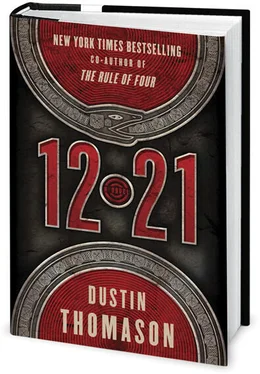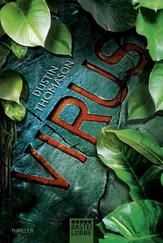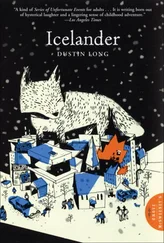“We’ve been open with the inspectors,” Mastras said. “They poke around, we give them feed logs, the whole thing. We’ve always come up clean.”
“You mean the tiny fraction of samples the USDA tests has come up clean,” Davies said.
“You know we’ll be screwed as soon as word gets out you guys are investigating us,” Mastras yelled over the bulldozers. He had red hair and pasty skin, and Stanton had taken an instant dislike to him. “It won’t even matter if it’s true or not.”
“We’re not making anything public until we find the source,” said Davies. “CDC is keeping this all under wraps.”
Stanton ran a quick calculation of the animal remains he could see scattered throughout the room. “This is a lot more than what you’re slaughtering here,” he said. “Are you rendering material from other farms?”
“Some,” Mastras said. “But we don’t take any meat that’s still in the plastic from supermarkets, and we don’t grind up any flea collars with those insecticides either. The pound takes off the collars before dropping their animals off, or we don’t take them. Bosses insist, because they want the highest standards.”
Davies said, “Or, as we call it, the law.”
They arrived in front of a series of conveyor belts, on which carcasses of different animals came in off the trucks once they were skinned. All the belts were covered with indistinguishable organs, bloody skin, masses of mixed bones, and broken sets of teeth.
Davies started with the belt on which the pig remains were carried inside. Using forceps and an X-Acto knife, he cut samples from the belt and dropped them into a specimen retrieval cup for the ELISA—enzyme-linked immunosorbent assay—a test they’d developed years ago for finding traces of mad cow. Stanton focused on the cattle remains, placing pieces of flesh on a plastic plate with twenty different holes, each of which contained a clear protein-infused liquid. If there was any mutated prion, the solution would turn dark green.
Ten minutes later, after checking a dozen samples coming in on the conveyor belt, there was no change in any of the solutions. When Stanton repeated the process, the result was the same.
“No reaction,” Davies said as he came back across the floor.
Stanton turned to the floor manager. “Where are your trucks?”
Out on the loading docks, they worked over every inch of the vehicles used to cart the remains in from the slaughterhouse. They swabbed and tested the bloodstained walls and floors of all twenty-two trucks.
But swab after swab was negative, and when they got through all of them, the ELISA solutions stayed clear.
Mastras was smiling now. He hopped out of the last truck and called upstairs to report that they could begin serving to LAUSD immediately.
“I told you,” Mastras said. “We’ve always been clean.”
Stanton prayed they hadn’t missed anything and chided himself for believing they’d find the answer so quickly. Rendering was only one of the dangerous ways man manipulated meat. They’d just have to widen their search for what made John Doe sick. With every passing hour, others could be infected.
When Stanton stepped out of the truck, he saw that Mastras had left the loading dock and walked off down the road. He was staring at something in the distance. Stanton followed the manager until he had a clear look. Dust rose up in clouds beneath the tires of vans with antennas pointed in all directions.
“Motherfucker,” Mastras said, looking back at Stanton.
News crews were speeding toward them.
THE MASS OF PRESS CONGREGATED OUTSIDE PRESBYTERIAN HOSPITAL made Chel even more nervous than she already was. The doctor she’d spoken to on the phone told her the case was highly confidential, which suited her perfectly. Her motives here were complicated, and the less attention drawn to them the better. Still, it was clear some big news story had broken; in the parking lot there were news crews and cameras and reporters everywhere.
She sat in her car, considering the odds that the press presence had anything to do with why she was here. If she went inside and there was a connection between the sick man and the book, she could end up in serious trouble. But if she didn’t, she might never know how it was possible that a sick indigenous man was repeating the Mayan word for codex a day after Gutierrez showed up with possibly the most important document in her people’s history. Her curiosity trumped her fear.
Ten minutes later, Chel stood in the patient’s room on the sixth floor of the hospital with Dr. Thane, her curiosity forgotten. They hovered over the patient’s bed, watching a man who was suffering terribly, sweating and in obvious pain. How he had ended up here, Chel didn’t know, but to die in an unfamiliar place, far from home, was the worst of all fates.
“We need to find out his name, how long he’s been in the States, and when he got sick,” Thane said. “And anything else you can tell us. Any detail could be important.”
Chel looked back at John Doe. “Rajawxik chew…” he mumbled in Qu’iche.
“Can we get him some water?” Chel asked Thane.
Thane motioned at his IV. “He’s more hydrated than I am right now.”
“He says he’s thirsty.”
The doctor picked up the pitcher on John Doe’s tray table, filled it in the sink, and then poured water into his cup. He grabbed it in both hands and gulped it down.
“It’s safe to get close to him?” Chel asked.
“It’s not contagious that way,” Thane told her. “The disease spreads through tainted meat. The masks are so we don’t give him another infection while his defenses are down.”
Chel adjusted the straps on her face mask and moved closer. It was unlikely the man worked in commerce; Maya who peddled their wares to tourists along the roads of Guatemala picked up some Spanish. He had no tattoos or piercings, so he wasn’t a shaman or a daykeeper. But his palms were callused, hardened across the base of each finger, with strips of cracked skin extending from the knuckle to the butt of the thumb. It was the sign of the machete, the hand tool indígenas used to clear land for farming. It was also what looters used to search the jungles for ruins.
Was it possible she was looking at the man who discovered the codex?
Thane said, “Okay, let’s start with his name.”
“What is your family’s name, brother?” Chel asked him. “I am a Manu,” she said. “My given name is Chel. What do they call you?”
“Rapapem Volcy,” he whispered hoarsely.
Rapapem , meaning flight. Volcy was a common surname. From the inflection of his vowels, Chel believed he was from somewhere in the south Petén.
“My family comes from El Petén,” she said. “Does yours?”
Volcy said nothing. Chel tried asking a few different ways, but he’d gone silent.
“What about when he came to the United States?” Thane asked.
Chel translated and got a clearer answer. “Six suns ago.”
Thane looked surprised. “Only six days ago?”
Chel looked back at Volcy. “You came across the border through Mexico?”
The man squirmed in his bed and didn’t answer. Instead, he closed his eyes. “Vooge,” he repeated again.
“What about that?” Thane asked. “ Vooge , is it? What does it mean? I looked it up with every spelling I could imagine and couldn’t find anything.”
“It’s w-u-j ,” Chel explained. “ W is pronounced like a v .”
“What does it mean?”
“It’s the Qu’iche word we use to refer to the Popol Vuh, the holy creation epic of our people,” Chel said. “He knows he’s sick, and he probably wants the comfort the book gives him.”
Читать дальше












